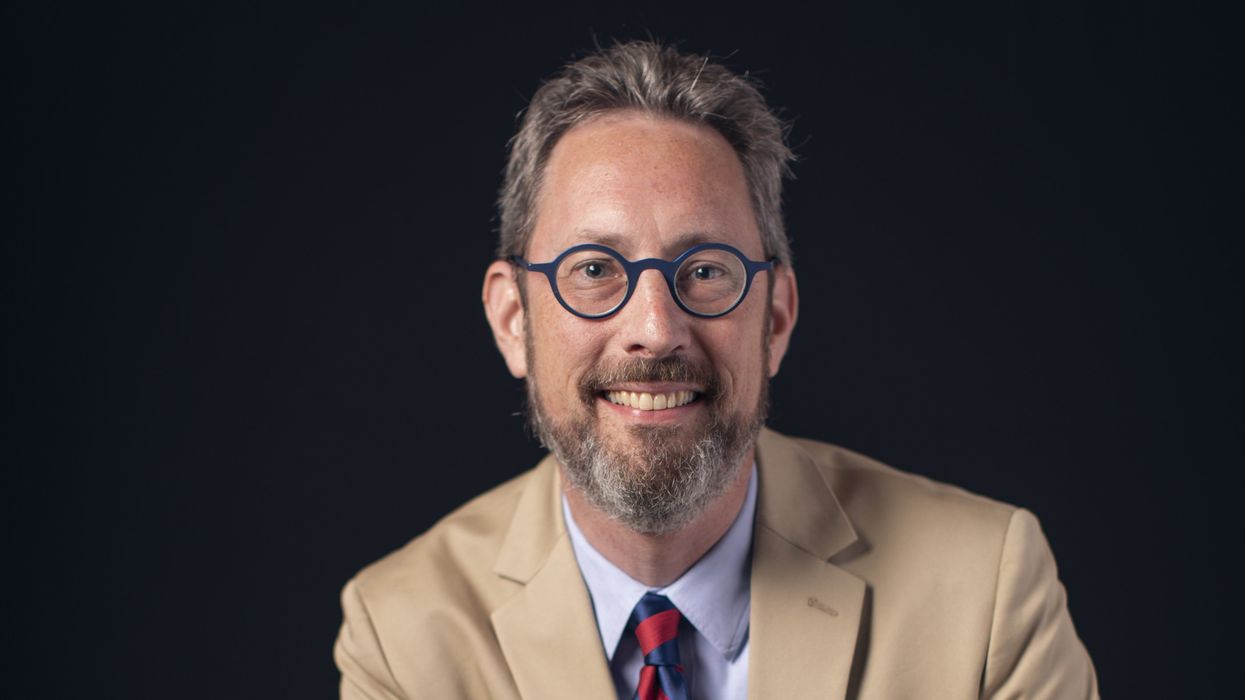Nevins is co-publisher of The Fulcrum and co-founder and board chairman of the Bridge Alliance Education Fund.
I had the honor to interview Matt Leighninger on March 21 for CityBiz. Leighninger directs the Center for Democracy Innovation at the National Civic League. He leads the center’s work in strengthening democratic infrastructure, organizing national engagement efforts, and measuring the quality of engagement and democracy.
Leighninger has been one of the central figures in democracy innovation over the last 20 years. As a network-builder, convener, author, commentator, researcher and practitioner, he has helped catalyze and connect the key developments in the recent evolution of democracy. As a result of these varied experiences and roles, Leighninger is able to articulate a systemic analysis of citizenship – and able to help people create more collaborative, participatory forms of democracy at a time when they are desperately needed.
He played a leading role in the wave of democratic innovation of the 1990s and 2000s, which produced many new face-to-face processes for dialogue and deliberation. Working with Everyday Democracy, and then the local officials and staff of the National League of Cities, he provided on-the-ground assistance to over 100 communities in 40 states. Leighninger described the lessons learned from these efforts to support active citizenship in his first book, “ The Next Form of Democracy.”
The next wave of innovation, which featured the proliferation of online technologies in the 2000s and 2010s, provided new opportunities for scaling and sustaining engagement. Leighninger cataloged civic tech platforms, apps, and initiatives, explored the conditions they needed to thrive, and helped people understand how to use them. While working on President Barack Obama’s National Dialogue on Mental Health, he combined smartphone polling and face-to-face dialogue to create Text, Talk, Act, which has provided over 50,000 young people with a powerful, personally meaningful experience of active citizenship.
From 2006 to 2015, he served as director of the Deliberative Democracy Consortium, a network of civic practitioners and researchers from around the world. He observed the difference between the temporary engagement strategies used in North America and the more sustained structures for citizenship being pioneered in the Global South, and he began to use examples from Brazil, India, and the Philippines to show how active citizenship can have a sustained, quantifiable impact on corruption, economic vitality, and public health. Leighninger was one of the main contributors to the World Bank’s online course “ Engaging Citizens: A Game Changer for Development,” which has been taken by over 33,000 people worldwide. He also became one of the popularizers of pb rticipatory Budgeting, a Brazilian invention that is now well-established in Chicago, Boston and New York City.
In 2015, Leighninger became vice president at Public Agenda, which has been one of the leading nonprofit organizations in the fields of public engagement and public opinion research since its founding in 1975. He was also named director of public agenda’s Yankelovich Center for Public Judgment. Over six years, he brought over $4 million in grants and contracts into the organization.
At Public Agenda, Leighninger continued advancing democratic innovation as part of a larger team. His “Rewiring Democracy” report, co-authored with Quixada Moore-Vissing, describes how the parallel development of subconscious technologies and conscious engagement present new threats and opportunities for society. Leighninger expanded Public Agenda’s work in K-12 education, environmental resilience, and public health (including a six-state project, Community Voices for Health, to strengthen the infrastructure for engagement and connect policymakers with citizens around vital health policy issues).
In New York City, Leighninger and his team created the Cycles of Engagement for Resilience project, which includes three “serious games” that help citizens and other stakeholders grapple with issues related to climate change and disaster recovery. He helped create the Yankelovich Democracy Monitor, an annual national study that gauges the attitudes of Americans toward potential democratic reforms. To meet the many challenges of 2020, his team produced Text, Talk, Engage to Fight Covid-19 and the Engagement Scorecard, a Yelp-like tool that gives people a way to rate the engagement efforts of public institutions. They organized the Global Learning on Democratic Innovations webinars, in partnership with Club de Madrid and Participedia. The Healthier Democracies project, supported by the Robert Wood Johnson Foundation, brought learning about democratic innovations in other countries to US public officials.
Leighninger brings unique skills, knowledge and experiences to the main challenges in democracy innovation: helping people institute new participatory strategies and reforms, helping them measure their progress, and communicating those stories and impacts in order to demonstrate the tremendous problem-solving potential of democracy and active citizenship.
Watch the interview to learn the full extent of Leighninger's remarkable work and perhaps you’ll become more civically engaged as well.
The Fulcrum Democracy Forum Meets Matt Leighninger, Director, Center for Democracy Innovation at NCLwww.youtube.com




















